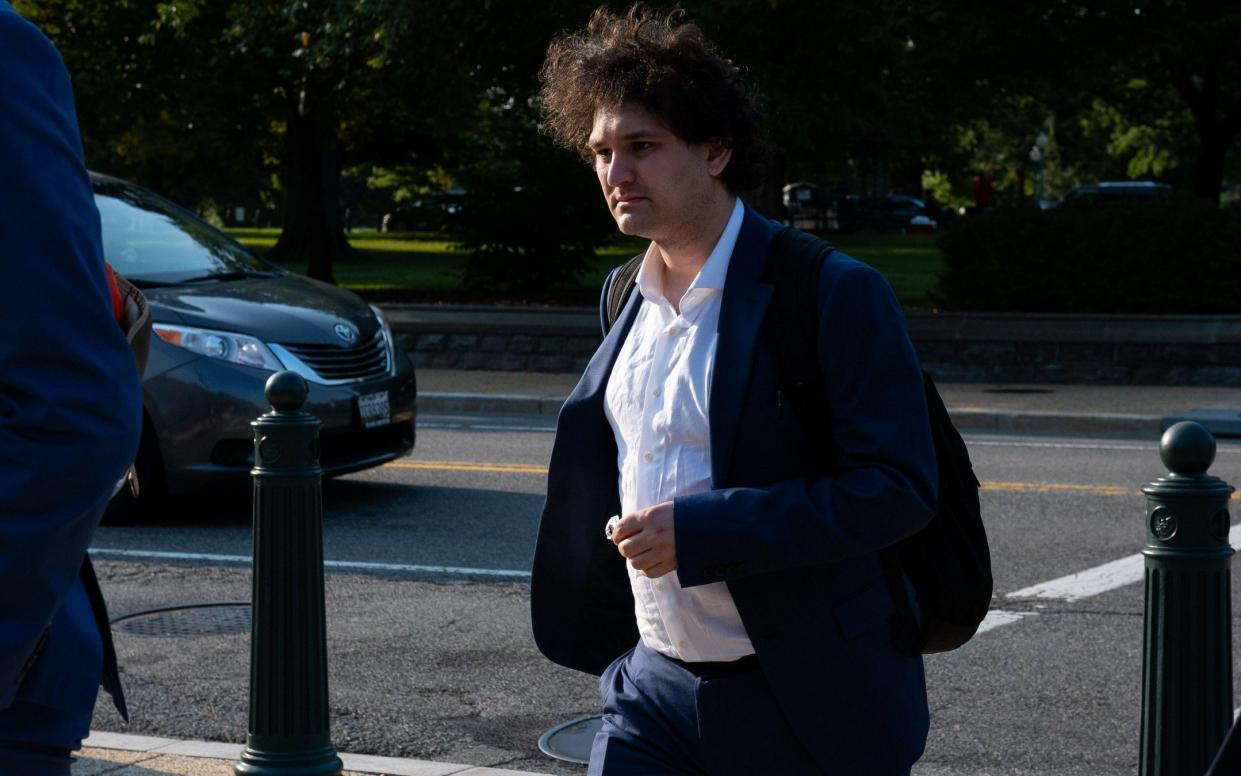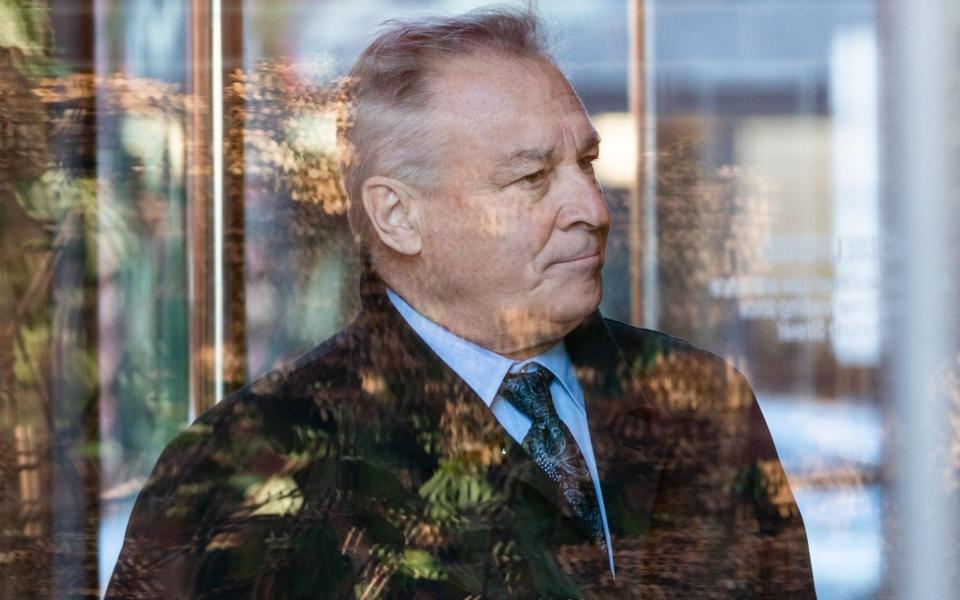I didn’t try to commit fraud, says FTX boss Sam Bankman-Fried

Sam Bankman-Fried has said that he “didn’t try to commit fraud” following the collapse of his FTX cryptocurrency empire.
The former boss of one of the world’s biggest crypto exchanges appeared at a New York conference to defend himself in the wake of the $10bn (£8bn) failure.
Apparently shaking at points as he spoke by video link from the Bahamas, Mr Bankman-Fried said he hoped to one day return to the US despite a criminal investigation into what happened.
He also alleged that some digital tokens belonging to customers were stolen as FTX went under.
Mr Bankman-Fried said: “Clearly, I made a lot of mistakes or things I would give anything to be able to do over again.
“I didn’t ever try to commit fraud.
“I… frankly made a mistake that I feel pretty embarrassed to have made.
“I substantially underestimated the scale of what a market crash could look like."
During the hour-long interview at the New York Times’ DealBook summit, the 30-year-old said he had been given drugs by doctors but insisted they had not affected his ability to do his job.

He said: “I have been prescribed various things at various times to help with focus and concentration and I think they have done that.
“I haven't felt any of the sort of impacts that people have been theorising here from it.”
Mr Bankman-Fried and FTX are under investigation by the Manhattan attorney’s office.
However, asked about a possible return to America, he said: “I could if I want to. I personally don't think that I have (criminal liability). There will be a time and a place for me to think about my future, but not now.”
Mr Bankman-Fried insisted that he “didn’t knowingly co-mingle” client money between FTX and Alameda, his personal hedge fund, despite reports that company funds were used to build a property empire.
He said: “I frankly surprised by how big Alameda’s business was.
"I was failing to pay nearly enough attention to positions and positional risk on the exchange. To Alameda’s in particular."
A team of British accountants has jetted into the Bahamas in an attempt to seize control of the bankruptcy of the crypto exchange FTX and its potentially lucrative fees.
PwC has parachuted in senior partners, some of whom led the Lehman Brothers insolvency in 2008, ahead of what “has potential to be a massive job” for the Big Four accountant, according to City sources.
PwC, appointed liquidator of FTX’s Bahamas subsidiary, is now preparing to argue that the crypto exchange’s core operations were run from the Caribbean island.
The move sets up a battle with leading US restructuring consultants over fees likely to be worth tens if not hundreds of millions of dollars.
FTX, which raised capital at a valuation of $32bn in January, filed for bankruptcy at the start of November following a failed rescue by rival Binance.
It has subsequently emerged that the company, founded by 30-year-old Sam Bankman-Fried, collapsed with liabilities of at least $10bn.
FTX’s bankruptcy is expected to be one of the most complex on record with an estimated one million individual creditors.
John Ray III, who oversaw the winding up of US energy giant Enron after its collapse in 2001, was hired to replace Mr Bankman-Fried and manage FTX’s bankruptcy administration in the US.

Enron’s demise, within which a litany of frauds was exposed at the once $60bn corporation, led to boss Jeffrey Skilling being sentenced to 24 years in jail. Mr Skilling was convicted of charges including conspiracy, insider trading, securities fraud and making false statements to auditors.
Mr Ray, who is being paid a reported $1,300-an-hour, said shortly after being appointed: “Never in my career have I seen such a complete failure of corporate controls and such a complete absence of trustworthy financial information as occurred here.”
He said that FTX had been run by “a very small group of inexperienced, unsophisticated and potentially compromised individuals”.
PwC’s UK arm, meanwhile, has the expertise of unwinding one of the most complicated banking insolvencies ever. The firm ran the administration of Lehman Brothers European arm, racking up fees of more than £600m within five years, money that it justified by virtue of paying out unsecured creditors in full.
PwC declined to comment beyond its initial statement after being appointed liquidator of FTX Digital.
PwC partner Peter Greaves said: “The provisional liquidation of FTX Digital brings together the two worlds of digital assets and traditional currencies. We are committed to conducting thorough and detailed investigations into the affairs of the company and bringing any legal proceedings required on behalf of the company’s stakeholders."
British lawyers, meanwhile, are also expected to benefit. Laws in many Caribbean nations hold similarities to the English legal system by virtue of historical ties to the Commonwealth.

Louise Abbott, a partner at Keystone Law, said the terms and conditions of FTX stated that English law applied in any dispute.
Ms Abbott said: "Investors are strongly urged to set out their legal claims to the liquidator. They may be able to rely upon legal arguments to establish that their claim ought to fall outside of the bankruptcy procedure. Investors will likely also need to undertake a full review of the potential claims against the company, or its directors personally, in fraud."
Separately, the European Central Bank (ECB) launched an attack on Bitcoin. It said the apparent stabilisation of Bitcoin's value "is likely to be an artificially induced last gasp before the crypto-asset embarks on a road to irrelevance".
The digital currency is "not suitable as an investment" according to the article by Ulrich Bindseil, director general of the ECB's market operations, and advisor Jürgen Schaaf. He warned that Bitcoin's market valuation is "based purely on speculation" and warned that "regulation can be misunderstood as approval".

